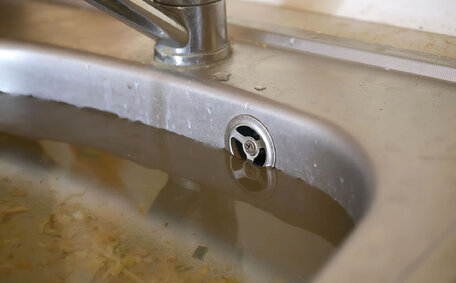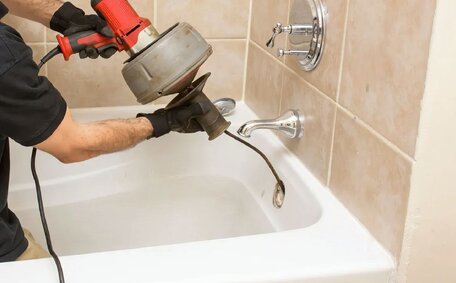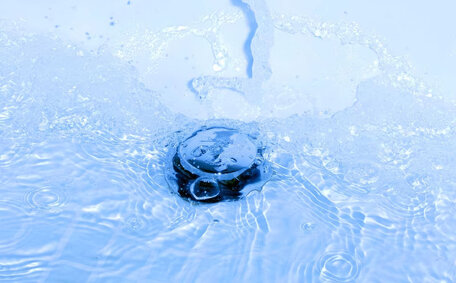Recognizing the Signs of a Potential Gas Leak
Detecting gas leaks early is crucial for safety and preventing property damage. An odorant giving natural gas a sulphurous smell alerts people to potential leaks.
Additional signs include the safety shutoff valve activation, hissing noises near gas lines, visible line damage, or feeling sick near a possible leak. Upon detecting these signs, immediately shut off the gas, evacuate the premises, avoid ignition sources, and contact your gas supplier or emergency services.
Locating the Gas Meter Shutoff Valve
Typically, the gas meter and shutoff valve are located outside the home, close to the front foundation or along the side of the house. Identify the main valve by locating a pipe emerging from the ground attached to a meter with a digital display.
There should be a valve handle to turn off the gas meter when required. Make sure your path to the gas shutoff valve remains clear, ensuring you can swiftly turn gas off without obstructions.
If you have an underground propane tank, the shutoff will be located at the tank itself. Turn the valve clockwise to shut off gas to your appliances, including the water heater and any connected systems. Outdoor propane tanks often include an emergency gas shut off feature, such as a stop button, for added safety.
Homeowners should familiarise themselves with turning off their main gas supply proactively, before emergencies occur. Ensure gas appliances are isolated when you turn off the gas at the main shutoff valve handle, which should be turned perpendicular to the pipe. If a gas scent is present despite the valve being closed, immediately contact your gas provider, as another leak may be present.
Properly Shutting Off the Gas Supply at the Meter
To prevent explosions, avoid sparks or flames when shutting off the gas, since natural gas is highly flammable. Protect your home gas supply with these critical steps:
- Evacuate all occupants and turn off all gas sources at once, particularly if appliances are in use and pose hazards.
- Avoid using anything that could create a naked flame, including electrical switches or phones, as these can produce sparks.
- Find the gas service shutoff valve, typically a lever or wheel connected to the gas meter gas pipe, by locating your gas meter outside your home.
- In the process of turning off the gas, gingerly rotate the valve 90 degrees clockwise until it sits transverse to the pipe, halting the gas flow.
- Natural gas disperses into the air upon release, while LP gas is heavier and accumulates closer to the ground, so consider how the gas disperses.
- If you still smell gas after taking these steps, call the gas leak 1800 427 emergency number immediately, as another source of a leak could exist.
- Do not attempt to ignite the pilot light or restore the gas flow by yourself; seek the expertise of a licensed gasfitter for these actions.
Securely closing the gas valve at your meter assists in safely suppressing a leak, but ensure to inspect your gas fixtures as soon as help is available. Remember—avoid sparks, evacuate occupants, and call a professional if gas persists despite taking proper precautions.
Ventilating the Area After Shutting Off Gas
Open all doors and windows to ventilate the area, allowing gas fumes to dissipate harmlessly. You can also turn on exhaust fans in bathrooms or over the stove to improve ventilation.
Do not engage electrical switches that can spark; ensure a licensed gas fitter completes necessary repairs. Unplug appliances gas power sources but avoid yanking cords, which can generate small sparks. Continuing ventilating even once help arrives until given the all-clear that it is safe to re-enter.
In an emergency, ensure you have essential items like flashlights and phones accessible after ventilating the area and while waiting for help. Flashlights, phones, and other electronics on hand, so they can be easily located once you have sufficiently ventilated the area and await help.
Adequately ventilating after a gas shutdown reduces the potential for gas build-up and the associated risks of explosions or reduced oxygen levels. Let the professionals confirm it is completely safe before you or your family returns inside the building.
Using Built-in Shutoff Valves for Individual Appliances
Many gas appliances, like water heaters and stoves, feature manual shutoff valves for safety. These valves isolate the gas supply to that specific appliance. Locate the valve near the gas line connection point on the appliance and give it a quarter turn clockwise to shut off the gas.
Using individual shutoff valves lets you isolate and turn off malfunctioning appliances safely while preserving gas flow to the rest of the home.
Every appliance off valve should be closed before gas maintenance work as an added safety precaution. Test valves periodically by turning them on and off to ensure they function properly when needed.
Remember, whether shutting off gas or water, built-in appliance valves are meant for short-term, not permanent disconnection. Make sure a licenced professional repairs appliances and restores the gas flow once any issues have been addressed. Turning off gas appliance units individually with built-in shutoff valves provides an extra level of control during gas leak emergencies, best performed by a licenced gas professional.
Calling a Professional Plumber for Assistance
While safely shutting off your gas supply is crucial in an emergency, gas systems are complex and repairs should only be handled by qualified professionals. Contact licenced plumbers like Hornsby Plumbing for any gas service requirements or issues. Their team is fully equipped to handle emergencies 24/7.
Hornsby Plumbing can be reached at 1300 349 338 or emailed at [email protected]. Their knowledgeable gas fitters can inspect leaks, repair damaged pipes, restore safe operation of appliances, and advise on gas safety. Rely on their expertise rather than attempting dangerous DIY gas repairs.
Understanding the Risks of Gas Leaks
During a fire emergency, acknowledge the critical importance of swiftly being able to turn off your gas to mitigate severe safety risks. Leaked gas can lead to fires, explosions, and carbon monoxide poisoning if ignited. Inhalation of unignited gas fumes can be distinctly hazardous, necessitating immediate actions guided by fire safety protocols and emergency services.
Gas leaks pose an explosion hazard if the concentration of gas to air reaches 5% or higher.
Precautions like regularly scheduled gas inspections, leak checks, and turning off gas supply during potential risks can help mitigate dangers. However, if you suspect gas leakage, immediately shut off the gas supply and contact qualified professionals to locate and repair it. Gas leaks should never be taken lightly or left unattended due to the severe health consequences they can cause.
Identifying Gas Leak Warning Signs
the rotten egg smell added to natural gas appliances and propane tanks, there are other subtle signs of a potential gas leak to watch out for.
This includes damage to gas lines, unusual changes in vegetation along the gas line path, unexplained increases in monthly gas bills, or the presence of dirt, debris, or bubbling water around gas pipes and appliances.
Plants near underground gas leaks may appear discoloured or dead, indicating disturbances in your gas service. Seeing bubbles rising in wet areas, pools, or toilet bowls when no one has used them recently can indicate a gas leak accumulating underneath. Look into any unusual physical changes near gas appliances or lines as potential leak indicators.
Trust your senses—if you smell, see, or hear anything abnormal near natural gas fixtures and appliances inside or outside the home, play it safe by immediately evacuating and contact licensed gas fitter to inspect for leaks.
Local gas professionals use specialised equipment to find small gas leaks, helping to prevent fires, explosions and ensuring home safety.
Typical Meter Valve Locations
Gas metres and shutoff valves are often found external to the home, typically along the front wall or side perimeter. The shutoff valve, connected to the inlet pipe, is typically found near the meter’s digital readout.
For buried gas lines, the valve attached to the meter protrudes above the ground for easy operation. This valve controls the gas flow to the property, allowing it to be turned on or off as needed.
A meter near your garden may service outdoor features, with the valve being crucial for devices like pool heaters. For homes with internal or basement metres, the shutoff is located just before the line enters the building. Knowing exactly where your gas shutoff valve is located before an emergency allows faster response.
Regardless of configuration, metres must remain accessible without obstructions.
Accessing the Gas Meter
Find out more about accessing your gas metre shutoff valve swiftly, as it is crucial in an emergency. Ensure that the metre area, in compliance with Australian regulations, is free from locked doors, fences, or debris for prompt emergency access.
For meters in external cabinets, ensure the doors function properly and latches or locks are easily operable in dim light. Use flashlights to facilitate nighttime access. Install battery-powered emergency lights to illuminate the metre area.
If landscaping like trees or shrubs obstruct the metre, have them professionally trimmed back to maintain a clear path. Eliminate tripping hazards from raised garden beds, hoses, tools near the gas metre. In winter, clear any snow accumulation around the gas meter to maintain clear access.
Regularly check your valve handles, switches, or safety shutoff buttons to make certain you can shut off your gas easily. Replace rusty valves that do not turn smoothly. A meter that requires a wrench to be shut off indicates a problem that should be fixed by a professional before any emergency arises.
Opening Windows and Doors
After a gas shut down, opening doors and windows is critical for ventilation and clearing any lingering gas from the air. As natural gas is lighter than air, it ascends, whereas LPG, being denser, descends to lower levels, which could affect areas such as the basement of your house.
In the event of a stove leak, open all doors and windows to let heavier propane gas disperse and evacuate residents safely. This circulation fosters fresh air throughout your home, clearing any gas from the environment. Turn on bathroom and kitchen exhaust fans to actively vent gas away.
Avoid toggling light switches or appliances on and off, as switches can spark. Use battery operated flashlights if needed instead. Ventilate the property continuously like this for at least 5-10 minutes before assessing if gas odour persists.
Effective ventilation by opening doors and windows, especially near living spaces, rapidly reduces hazardous gas concentrations. Letting fresh air circulate removes pockets where leaking gas could accumulate and keeps your property safe while awaiting professional assistance.
Using Appliance Shutoff Valves
Many gas appliances with pilot lights and solenoid valves, feature in-built safety mechanisms to isolate their gas supply. Identify the manual gas valve near the connection point where the gas line meets the appliance; especially vital is easy access to your hot water system’s valve. Turning this valve a quarter-turn clockwise shuts off gas to just that or all your gas appliances for safety during maintenance or malfunctions.
Regularly test the responsiveness of your gas appliance shutoff valves, such as those for your hot water heater, to ensure flawless operation. Keep each gas appliance’s valves clean, lubricated, and easy to manipulate. Have all your gas appliances serviced regularly and confirm shutoff valves are operating correctly during maintenance checks.
Built-in appliance gas valves allow you to shut off gas appliance only, like the hot water system, without cutting off the gas supply to the rest of the home. Contact a licenced professional as soon as possible for any service or repairs required on gas appliances.
However, these are intended for temporary shutoff only. Never attempt dangerous DIY gas work yourself; rely on your licensed gas fitter.
Hiring a Licensed Professional
Gas systems require extensive technical knowledge and it’s only safe to manage them with hands-on training. As gas leaks can rapidly escalate into fires or explosions, it is extremely dangerous for untrained individuals to attempt repairs themselves. Always hire qualified professionals licenced specifically for gas work whenever intervention on pipes, appliances, or components is needed.
Hornsby Plumbing’s certified team provides expert gas installation services, having been thoroughly trained and tested to work proficiently and in compliance. We are equipped to handle everything from leak detection, line repairs, and appliance servicing to installations meeting strict industry standards. With lives potentially on the line, entrust your gas system only to properly accredited experts.
Should you be concerned about a potential leak or appliance irregularity, please contact your dedicated service team at Hornsby Plumbing for immediate support. We are available 24/7 to respond and rectify any gas-related emergencies. When safety is paramount, rely on Hornsby Plumbings licenced professionals to troubleshoot and restore proper operation of your residential or commercial gas system.






